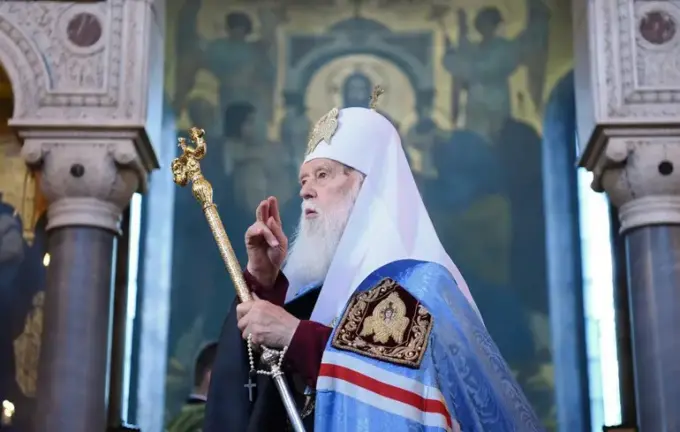Filaret Imposes Restrictions for Hierarchs of the OCU Regarding His Funeral and Requiem

The prominent Ukrainian church leader and former head of the Ukrainian Orthodox Church of the Kyiv Patriarchate, Filaret, has established a significant spiritual restriction concerning his funeral rites.
In his personal will, he explicitly forbade the hierarchs of the Orthodox Church of Ukraine (OCU) from conducting prayers and burial ceremonies after his passing.
According to Filaret, he desires that his funeral take place in the Vladimir Cathedral in Kyiv, attended by bishops of the Kyiv Patriarchate, regardless of the decisions taken by the hierarchy of the OCU, who hold different views.
He emphasized that he remains the leader of the Kyiv Patriarchate and does not recognize himself as an honorary patriarch of the OCU, affirming his independence.
In his will, he stated: “In the event of my death, I command that the requiem be conducted by bishops of the Ukrainian Orthodox Church of the Kyiv Patriarchate, not the OCU.” This decision is highly significant within the ongoing conflict between the churches aspiring for independence from Moscow and Constantinople.
Notably, the St.
Sophia Cathedral in Kaniv has been officially transferred to the OCU — a step towards establishing a unified national church.
Meanwhile, at the December 2018 unification council, the decision was made to dissolve the Kyiv Patriarchate and integrate it into the OCU, though this process was delayed due to court disputes and political disagreements.
Filaret opposed this move and actively defended the independence of his church, even convening a ‘tomos assembly’ in 2019, which restored the activities of the Kyiv Patriarchate.
This led to conflicts with Epiphany and the leadership of the OCU, especially after he consecrated new bishops in violation of canonical rules.
Today, Filaret, aged 96, is hospitalized due to health issues, with believers praying for his recovery.
All these events highlight the complex and ongoing struggle within Ukraine’s ecclesiastical landscape over spiritual authority and canonical church structures.

